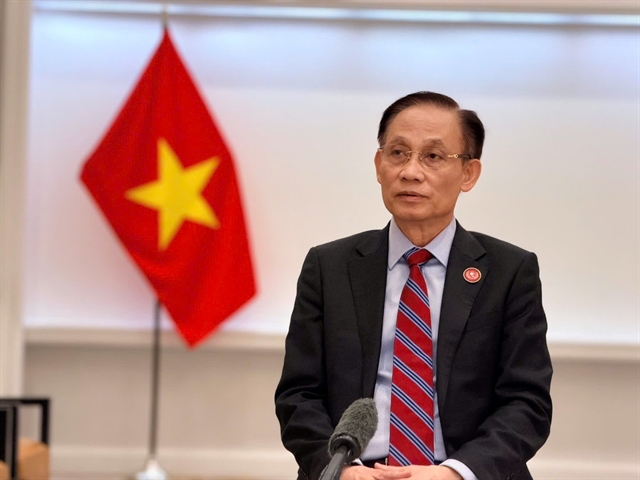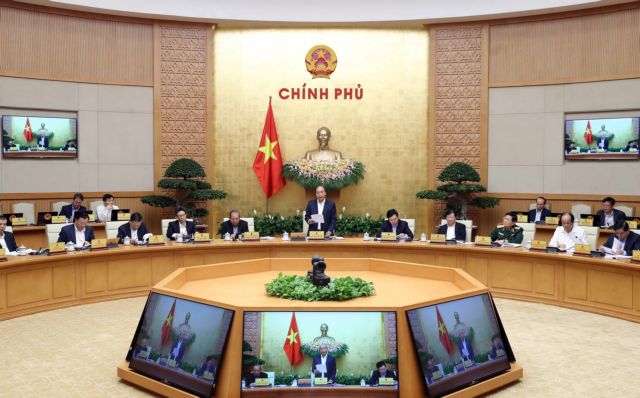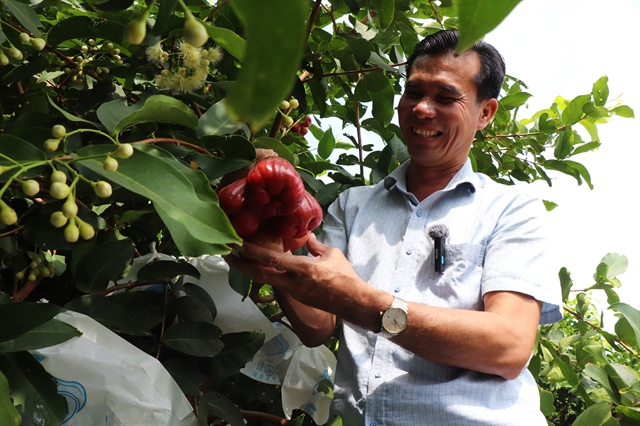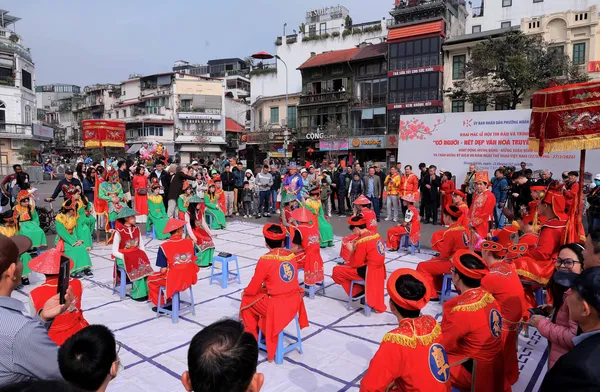 Politics & Law
Politics & Law


|
| Prime Minister Nguyễn Xuân Phúc speaks at the Government’s regular meeting on Tuesday, during which he said the socio-economic situation in February had basically remained stable. — VNA/VNS Photo Thống Nhất |
HÀ NỘI — Despite difficulties resulting from the novel coronavirus SARS-CoV-2 (COVID-19) Việt Nam’s socio-economic situation in February basically remained stable, said Prime Minister Nguyễn Xuân Phúc.
At the Government’s regular meeting yesterday, the Cabinet leader said thanks to the political system’s activeness, drastic and effective actions, and the spirit of “fighting the disease is like fighting enemies”, COVID-19 prevention and control efforts had been encouraging.
He repeated the Government’s consistent viewpoint of being ready to sacrifice economic benefits to protect the health of people and visitors to Việt Nam.
According to the PM, Việt Nam had stayed calm and serious in assessing the issue, and was ready to respond to every circumstance. The localisation of hotbeds had been fast and effective, while the quarantine of Vietnamese citizens and foreigners who travelled through coronavirus-hit areas had also been swift.
Thanks to these efforts, the COVID-19 outbreak in Việt Nam had been minimised although the country shared a long border with China, where the epidemic started. So far, there had been only 16 infection cases in Việt Nam, and all of them had fully recovered, PM Phúc noted.
He lauded the efforts being made by various sectors, especially the military, police and health forces, and localities nationwide, adding that nearly 10,000 people had undergone quarantine and received care from local authorities and military units.
Việt Nam had recorded no new SARS-CoV-2 infection cases over the last 18 days, he noted.
However, as the disease had spread to 67 countries and territories, and the World Health Organisation (WHO) had raised the global risk assessment of the infection to “very high”, it was necessary to take drastic action to continue disease prevention and control to prevent COVID-19 from spreading in the community, PM Phúc said.
The PM pointed out that the outbreak had greatly influenced all major economies around the world. In Việt Nam, it had heavily impacted air transport, tourism, services, and especially value chains, leading to an interruption in the supply of input materials.
Despite that fact, the socio-economic situation in February basically remained stable, PM Phúc said, noting that the consumer price index (CPI) declined, budget revenue increased, funding for anti-disease work was provided in a timely manner, and agriculture developed stably.
He asked Government members to discuss financial and banking solutions and other measures to facilitate production and business activities to realise their development targets.
At the meeting, the Ministry of Planning and Investment reported that many areas fell in the first two months from the same period last year, such as the disbursed and registered FDI capital. Retail sales of goods and consumer service revenue, as well as foreign arrivals in Việt Nam, also witnessed slower growth.
However, there remained many positive points to the socio-economic situation, the ministry said.
Macro-economic stability had been maintained, and February CPI fell just 0.17 per cent month-on-month. Meanwhile, exports in the first two months grew 2.4 per cent year-on-year to US$36.9 billion, and agricultural development remained stable.
More than 17,400 businesses with registered capital of almost VNĐ364 trillion ($15.7 billion) were established in the two months, up 9.1 per cent and 47.1 per cent, respectively. Nearly 12,000 firms also resumed operations, up 17.1 per cent.
He took noted of the declining growth rate of many sectors, especially tourism and aviation. Many enterprises face a shortage of materials, while unfavourable weather conditions such as drought or hailstorms in northern provinces further caused difficulties to production and people’s daily life.
To overcome the difficulties, PM Phúc urged ministries and agencies to immediately work out specific solutions and tasks to help sectors hard hit by COVID-19, particularly trade, finance, services, and import-export.
He required the immediate implementation of credit support packages worth at least VNĐ30 trillion (nearly US$1.3 billion) to support enterprises and the people.— VNS




